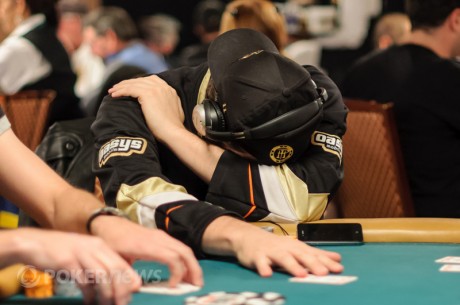The Poker Shrink, Vol 37 - The Strategy of Tension

We often read crossover articles between poker and business, poker and stock trading, poker and other sports, even poker and relationships. You know the titles I mean: 'Keeping a poker face when your wife asks: 'Does this dress make me look fat?'' Or 'Bluffing the Boss: Asking for that Big Raise.' Poker terminology is everywhere. Most of the time, the similarity between poker and something else has a lot to do with human nature. Being who we are, we humans tend to use whatever works in one part of our life as a strategy in other areas. It is quite simple, if the hammer works on the nail, it probably will work on the frozen latch, the stuck flywheel and the block of ice cubes.
For the next couple of articles, I am going to look at some concepts that originate far, far away from casinos, cardrooms and poker games. Let's start with terrorism.
The strategy of tension (Italian: strategia della tensione) is a way to control and manipulate public opinion using fear, propaganda, disinformation, psychological warfare, agents provocateurs, false flag terrorism actions and even terroristic actions. [Wikipedia] In the words of historian Daniele Ganser, "It is a tactic which consists in committing bombings and attributing them to others." It is the intentional creation of tension in order to influence others to accept your idea or your solution to relieve that tension or to avoid further tension and discomfort.
The key here, for poker at least, is that there is a natural tendency for us to avoid tension and discomfort. Therefore, if someone could create tension at the poker table and also offer a means by which a player could avoid more tension, then they might be able to manipulate other players via the Strategy of Tension. Let me give you an example.
Several years ago I was covering a tournament when I saw a very highly regarded professional player use the Strategy of Tension. I did not completely understand the entire process at the time but since I have seen him do this several times since, I am now convinced it is a conscious tactic on his part. I am not going to name this player, you will see why later - let's just call him Len.
Len was at a fairly tough final table, about two hours into play with six players still remaining. Len begins to ask the floor a couple of questions. Nothing too pushy but he is clearly complaining about very minor points. Then I notice he begins to watch the dealer's very closely, looking for the smallest mistake. Finally, when a dealer neglects to move the button before the deal begins, Len snaps: "Where is the button?"
The floor steps in and makes sure the mistake is corrected but Len does not let up. He continues to loudly complain that: "We are playing for a lot of money here." He picks at every point: blinds being posted, bets being pulled into the pot; he is relentless and alternates between loudly and longly complaining for all to hear and a deep, brooding, ready to explode silence. Len had established a very tense situation at the final table.
Why?
How likely are you to reraise an angry player? An angry, professional player you have seen on television? An angry, professional player, the floor staff have been calling by name and listening to and trying to calm?
Notice Len did not attack another player he focused on floor staff and dealers. Yet he created a very tense situation and then exploited it to his advantage. I have in the past three years seen Len do this several more times; each time with amateur players at the table who might actually be intimidated by this behavior.
At one such event where there had actually been a physical confrontation between Len and another player, I was standing next to the table counting chips while the tournament was on a break. Len looked at me and snarled: "You don't need to count my chips." I leaned down and replied: "Len, there aren't any other players around; you can cut the angry man act with me." He looked up at me, smiled and with a twinkle in his eye said: "Don't tell them my tricks."








